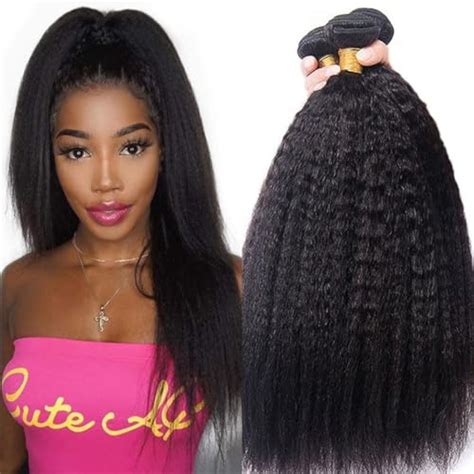
Introduction
The military crew cut, a classic coiffure synonymous with discipline and precision, has transcended its military origins to become a popular choice for men of all walks of life. Characterized by its short, evenly trimmed sides and back with a slightly longer top, the military crew cut offers a clean, polished look that exudes confidence and masculinity. This article delves into the intricacies of the military crew cut, exploring its history, benefits, variations, and styling techniques.
Historical Context
The military crew cut emerged in the early 20th century as a practical hairstyle for soldiers. The short length reduced the risk of lice infestation, while the uniform trim facilitated the wearing of helmets and gas masks. By the 1950s, the crew cut had become a staple of military fashion, reflecting the values of discipline, conformity, and unity.
Benefits of a Military Crew Cut
Beyond its military heritage, the military crew cut offers numerous benefits:
Low Maintenance
The crew cut’s short length requires minimal styling, making it a convenient option for busy men.
Versatility
The crew cut can be adapted to suit different face shapes and hair textures, ranging from thick and curly to fine and straight.
Professionalism
The clean, polished look of the crew cut exudes professionalism and is well-suited for both formal and casual settings.
Improved Scalp Health
The short length of the crew cut promotes scalp ventilation, reducing the buildup of oils and dirt.
Variations of the Military Crew Cut
The military crew cut has evolved over time to include several variations:
Standard Crew Cut
The most common military crew cut, characterized by short, evenly trimmed sides and back with a slightly longer top.
High and Tight Crew Cut
A shorter variation where the sides and back are trimmed very close to the scalp, leaving a longer top.
Flat Top Crew Cut
A variation where the top of the crew cut is cut straight across, creating a flat, horizontal surface.
Induction Cut
The shortest possible military crew cut, where the hair is trimmed to a uniform length of 1/4 inch (0.6 cm).
Styling a Military Crew Cut
Styling a military crew cut is straightforward:
- Use high-quality products: Invest in a good pomade or wax to control the hair without weighing it down.
- Apply to damp hair: Apply styling products to damp hair to distribute them evenly.
- Smooth and style: Use a comb or brush to smooth the hair into place and add definition.
- Secure with hairspray: Finish by misting hairspray onto the crew cut to hold the style in place.
Who Should Consider a Military Crew Cut?
The military crew cut suits men of all ages and face shapes. It is particularly suitable for men with:
- Oval or round faces
- Thick or curly hair
- Active lifestyles
- Professional settings
Pros and Cons of a Military Crew Cut
Pros:
- Low maintenance
- Versatile
- Professional
- Improves scalp health
- Doesn’t require daily styling
Cons:
- Can be too short for some preferences
- Not suitable for men with receding hairlines
Frequently Asked Questions
Q: How often should I get a military crew cut?
A: Regular trimming is necessary to maintain the desired length and style. The frequency depends on hair growth rate, typically every 2-4 weeks.
Q: Can I style a military crew cut with gel?
A: Yes, gel can be used to achieve a sleek, wet look. However, use a moderate amount to avoid making the hair too stiff.
Q: Is the military crew cut suitable for all face shapes?
A: No, the military crew cut is most suitable for oval or round faces. Men with long or square faces may want to consider other hairstyles.
Q: Does a military crew cut damage my hair?
A: No, when done properly, a military crew cut does not harm hair. The short length helps prevent split ends and breakage.
Q: Can I get a military crew cut if I have curly hair?
A: Yes, but it is important to find a barber who is experienced in cutting curly hair. They can adjust the length and style to suit your hair texture.
Conclusion
The military crew cut is a timeless hairstyle that offers numerous benefits, from low maintenance to improved scalp health. With its versatility and adaptability, the military crew cut suits men of all ages and face shapes. Whether you’re seeking a classic, professional look or a more modern, edgy style, the military crew cut is a versatile choice that will never go out of fashion. Embrace the discipline and confidence that comes with a military crew cut and step into a world of stylish practicality.
Tables for Further Exploration
Table 1: History of the Military Crew Cut
| Year | Event |
|---|---|
| Early 20th century | Emergence in military fashion |
| 1950s | Became a staple of military fashion |
| 1980s | Popularized in civilian culture |
| Present | Remains a popular choice for men of all walks of life |
Table 2: Benefits of a Military Crew Cut
| Benefit | Description |
|---|---|
| Low Maintenance | Requires minimal styling |
| Versatility | Adaptable to different face shapes and hair textures |
| Professionalism | Exudes a polished, confident look |
| Improved Scalp Health | Reduces oil buildup and promotes ventilation |
Table 3: Variations of the Military Crew Cut
| Variation | Description |
|---|---|
| Standard Crew Cut | Short, evenly trimmed sides and back with slightly longer top |
| High and Tight Crew Cut | Very short sides and back with longer top |
| Flat Top Crew Cut | Top of crew cut is cut straight across |
| Induction Cut | Shortest possible military crew cut |
Table 4: Styling a Military Crew Cut
| Step | Instructions |
|---|---|
| 1. Use high-quality products | Apply pomade or wax to damp hair |
| 2. Smooth and style | Use a comb or brush to distribute products evenly and add definition |
| 3. Secure with hairspray | Finish by misting hairspray onto crew cut to hold style in place |
